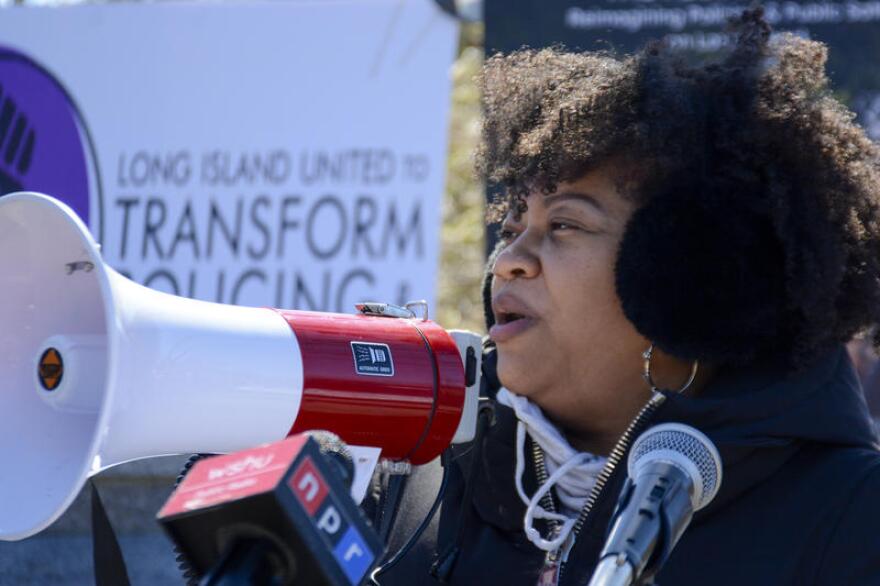After adding last-minute changes pushed for by community advocates, Suffolk County lawmakers approved a state-mandated police reform plan. The changes, which were debated into the night, include more funding for tiered mental health response, a permanent task force to reevaluate police in schools, and more public data about traffic and pedestrian stops.
The revised plan also includes a more specific description about the role the county’s Human Rights Commission will have in misconduct investigations conducted by the police department’s internal affairs bureau. However, the additions ultimately fell short of the independence that reformers sought.
Deputy County Executive John Kaimen told lawmakers that while the Human Rights Commission will not have investigative powers, it will be able to “review” the internal affairs investigations in real time.
“So what happens when the Human Rights Commission does find something that’s not consistent with expectations?” Answering his own question, Kaimen said the compromise the task force devised was a liaison. “A point person in the executive office and the legislature where the Human Rights Commission can go outside that circle.”
According to the written reform plan received by the legislature, Suffolk’s county executive will appoint a police accountability liaison who will “report… the number and nature of cases” to the legislature and the New York State Attorney General.
Additionally, Deputy County Executive Vanessa Baird-Streeter said the Human Rights Commission will be moved outside the County Law Department in an effort to give it more independence. However, it is still the county executive who decides who is on the commission on how much to fund it.
Several advocates called this a “bandaid” solution to systemic racism. They found suprise support from a member of the Human Rights Commission who said the current plan does not empower the commission enough to give confidence to those making complaints.
Carolyn Peabody, a member of the commission since 1992, said the plan does not give the “sense that there’s an independent body participating in the process that will assure a fair outcome.”
Peabody said the plan, as currently drafted, still allows police to discipline and investigate themselves. She proposed the creation of an inspector general to oversee investigations. Several Republican legislators, who are in the minority, said they would be drafting legislation to create a county-wide inspector general's office.
Legislator Sam Gonzalez, a Democrat from Brentwood, voted against the plan because police oversight was not truly independent.
“The most important piece is not included. We need to keep an eye on the big picture. On the one hand each reform is one step on the road to correcting a deep entrenched problem of misconduct,” Gonzalez said. “However, we need to put in an independent oversight.”
Gonzalez praised the police union’s effort to reach a compromise. He also criticized the police department for not being transparent with its policies.
The final vote on the reform plan was 16-1. Many lawmakers called the plan imperfect, but “transformative” and “fundamental change”.



